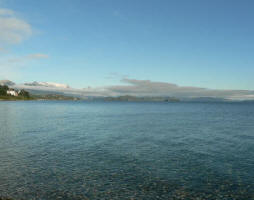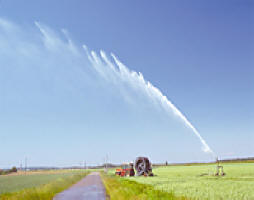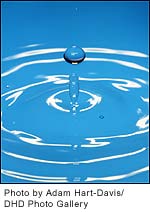 Spate Irrigation and Water Management under Drought and Water Scarcity
Spate Irrigation and Water Management under Drought and Water Scarcity
Spate irrigation is an ancient form of water harvesting and managing
unpredictable and sometimes destructive flash floods for crop and livestock
production. The system is unique to semi arid and arid areas where it has
existed for over 70 centuries.
Today spate irrigation is still the major source of livelihood for many poor
communities in South Asia, the Middle East and North Africa, whereas the
area under spate irrigation is on the increase in the Horn of Africa and
other parts of Sub-Saharan Africa.
Learning objectives:
Upon competition of the course, the participants will be able to:
- Comprehend best global and regional practices in spate irrigation, taking a broad integrated water resource management view;
- Draw spate irrigation development and management plans covering technical designs, institutional arrangements, socio-economic, environmental and legislative attributes;
- Understand alternative approaches for diverting spate flows – looking at where to divert flows, how to handle high floods and manage floods with high or detrimental sediment loads;
- Design and manage, operate and maintain alternative on farm structures the likes of controlled field intakes, overflow structures, in-field ditches and bunds and assess their effects on field water management and soil moisture conservation;
- Systematically analyze the impact of alternative field management, soil moisture conservation, and agronomic practices such as pre-season and post-irrigation ploughing, repair of field bunds, mulching, intercropping, alternate cropping, on crop yields;
- Grasp various experiences of groundwater recharge in spate irrigation - in particular, the effect - positive or negative - of different water distribution and spreading hydraulic structures and strategies on groundwater levels;
- Conceptualize and apply some moisture storage and irrigation water requirement and scheduling models;
- Link engineering and management improvements with changes in water governance and local organization.
Target group:
Participants are invited from government and non-government institutions and universities directly or indirectly engaged in the broader field of land and water development with particular emphasis in spate irrigation development and water resources management.
Participants should at least have a BSc degree in any land and water development field and a good basic knowledge of spate irrigation practices and principles. Computer literacy is highly preferred.
Additional information:
The course consists of lectures, case studies and group work assignments. It is organized into six modules:
1. Introduction: overview of spate irrigation system development and management concepts and practices;
2. Spate hydrology and engineering;
3. Soil and water conservation and management;
4. Organization and water governance;
5. Spate irrigation agronomy;
6. Case studies and group assignments.
Duration of course is 2 weeks. Course fee is €1360 Euro.
| Contact information |
Ms. Claudia Brakel, Registration Officer / AbrahamMehari Haile, PhD,MSc, Coordinator
(email: c.brakel@unesco-ihe.org ; a.meharihaile@unesco-ihe.org) Phone: +31 (0)15-2151720 ; +31 (0)15 2151824 |
|---|---|
| Event type | Training |
| File link |
http://www.unesco-ihe.org/education/short_courses/regular_short_courses/spate_irrigation_and_water_management_under_drought_and_water_scarcity |
| Source | UNESCO-IHE |
| Subject(s) | AGRICULTURE , FINANCE-ECONOMY , HYDRAULICS - HYDROLOGY , MEASUREMENTS AND INSTRUMENTATION , METHTODOLOGY - STATISTICS - DECISION AID , NATURAL MEDIUM , POLICY-WATER POLICY AND WATER MANAGEMENT , RISKS AND CLIMATOLOGY |
| Geographical coverage | Netherlands |
| Address | UNESCO-IHE, Delft, Netherlands |
| Organizer | UNESCO-IHE |
| Target audience | International |
| Duration | 2 weeks |
| Period | [10/09/2008 - 21/09/2008] |
| Status | Confirmed |
| Working language(s) | ENGLISH |
Login to add a comment
 you are not logged in
you are not logged in





